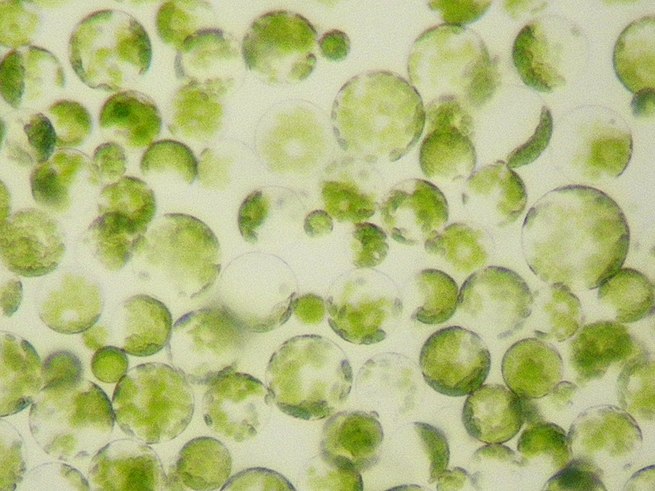
Main Difference
The main difference between Protoplast and Protoplasm is that the Protoplast is a entire biological cell, excluding the cell wall and Protoplasm is a part of cell.
-
Protoplast
Protoplast, from ancient Greek πρωτόπλαστος (prōtóplastos, “first-formed”), is a biological term coined by Hanstein in 1880 to refer to the entire cell, excluding the cell wall. Protoplasts can be generated by stripping the cell wall from plant, bacterial, or fungal cells by mechanical, chemical or enzymatic means.
Protoplasts differ from spheroplasts in that their cell wall has been completely removed. Spheroplasts are bacteria from which the peptidoglycan component but not the outer membrane component of the cell wall has been removed.
-
Protoplasm
Protoplasm is the living content of a cell that is surrounded by a plasma membrane.
In some definitions, it is a general term for the cytoplasm (e.g., Mohl, 1846), but for others, it also includes the nucleoplasm (e.g., Strasburger, 1882). For Sharp (1921), “According to the older usage the extra-nuclear portion of the protoplast [the entire cell, excluding the cell wall] was called “protoplasm,” but the nucleus also is composed of protoplasm, or living substance in its broader sense. The current consensus is to avoid this ambiguity by employing Strasburger’s [(1882)] terms cytoplasm [coined by Kölliker (1863), originally as synonym for protoplasm] and nucleoplasm ([term coined by van Beneden (1875), or] karyoplasm, [used by] Flemming [(1878)])”. The cytoplasm definition of Strasburger excluded the plastids (Chromatoplasm).
Like the nucleus, whether to include the vacuole in the protoplasm concept is controversial.
-
Protoplast (adjective)
Created first; archetypal. 16th-17th c.
-
Protoplast (noun)
The first-created human; Adam. from 16th c.
-
Protoplast (noun)
A prototype or archetype; a model. from 17th c.
-
Protoplast (noun)
The first person in a given family, lineage etc.; an ancestor. from 17th c.
-
Protoplast (noun)
The contents of a plant cell. from 19th c.
-
Protoplasm (noun)
The entire contents of a cell comprising the nucleus and the cytoplasm. It is a semi-fluid, transparent substance which is the living matter of plant and animal cells.
